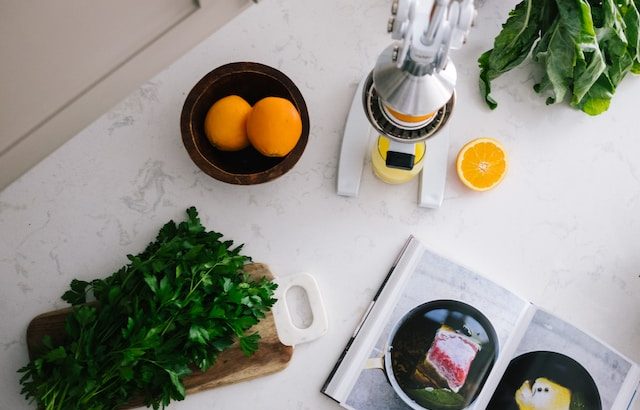The kitchen is often considered the heart of a home. It’s where meals are prepared, conversations happen, and memories are made. Central to the kitchen’s functionality and aesthetics are the countertops. With so many materials available, choosing the right one can be a daunting task. Let’s dive into the world of countertop materials and explore which might be the best fit for your kitchen.
1. Granite: A Timeless Classic
Overview: Once found primarily in upscale homes, granite has become more accessible and remains a top choice for those aiming for elegance and durability.
Pros:
- Unique Designs: Every granite slab boasts distinct veining, specks, swirls, and patterns.
- Durability: It’s resistant to chipping, scratching, and even heat.
- Value: While granite is an investment, it adds significant resale value to homes.
Cons:
- Maintenance: Requires periodic sealing to ensure resistance against staining and bacteria.
- Cost: High-quality slabs can be pricey.
- Weight: Its heaviness necessitates sturdy cabinet boxes as a base.
2. Quartz: The Modern Favorite
Overview: Engineered quartz is a blend of crushed quartz mineral combined with resin binders, offering a balance of beauty and resilience.
Pros:
- Consistency: Delivers a more uniform look compared to the naturally occurring patterns in stones like granite.
- Strength: Quartz is incredibly durable and less prone to chipping or cracking.
- Non-porous: It resists staining and doesn’t harbor bacteria, making cleaning a breeze.
Cons:
- Heat Sensitivity: Hot pots can damage the surface, so protective measures are crucial.
- Price: Quartz countertops can be comparable in cost to natural stone options.
3. Marble: The Epitome of Luxury
Overview: A favorite in gourmet kitchens, marble is prized for its sophisticated, timeless appeal.
Pros:
- Beauty: Known for its rich veining and unmatched elegance.
- Cool Surface: Perfect for rolling out pastry, as it doesn’t heat up quickly.
Cons:
- Maintenance: Prone to staining and scratching, sealing is crucial.
- Cost: High-quality marble, like Carrara, comes with a steeper price tag.
4. Laminate: Budget-friendly and Versatile
Overview: With technological advancements, modern laminates can mimic the aesthetics of pricier materials without the associated cost.
Pros:
- Variety: Available in numerous colors and patterns.
- Affordability: Perfect for those renovating on a budget.
- Ease of Installation: DIY-friendly, it can be a weekend project.
Cons:
- Durability: More susceptible to scratches, heat, and moisture than stone options.
- Longevity: With wear and tear, they might not have the same lifespan as other materials.
5. Wood (Butcher Block): Warm and Welcoming
Overview: A favorite among chefs and home cooks alike, wood countertops provide a warm aesthetic and practical functionality.
Pros:
- Functionality: Direct chopping and cutting are possible.
- Aesthetics: Offers a rustic, homey feel.
- Reparability: Scratches can be sanded down and refinished.
Cons:
- Maintenance: Requires oiling to prevent drying out.
- Water Sensitivity: Prolonged exposure can warp the wood or cause rot.
6. Stainless Steel: Sleek and Professional
Overview: Common in professional kitchens, stainless steel countertops offer a modern look paired with functional benefits.
Pros:
- Hygiene: Non-porous surface doesn’t allow bacteria to penetrate.
- Heat and Rust Resistant: Hot pots won’t damage the surface.
- Sleek Look: Complements modern, industrial designs.
Cons:
- Scratches: Over time, the surface can show wear and tear.
- Cold Feel: Doesn’t offer the warmth of materials like wood or stone.
7. Concrete: Customizable and Contemporary
Overview: Concrete countertops have gained traction in modern design, appreciated for their adaptability and unique look.
Pros:
- Customization: From shape to color to finish, everything can be customized.
- Durability: Properly sealed concrete is tough and long-lasting.
Cons:
- Maintenance: Requires sealing to prevent stains and water damage.
- Weight: Like granite, it’s heavy, requiring strong support.
8. Soapstone: Soft-Touched and Durable
Overview: Soapstone, a natural stone like granite and marble, has a softer feel but is quite robust.
Pros:
- Texture: Offers a soft, almost silky touch.
- Look: Dark gray in color, it provides a different aesthetic than brighter stones.
Cons:
- Maintenance: May require mineral oil applications to darken the stone evenly.
- Susceptibility: Softer than granite and can scratch (though many find this adds character).
9. Solid Surface (like Corian): Seamless and Stylish
Overview: Composed of acrylic and natural minerals, solid surface countertops are a blend of natural and synthetic.
Pros:
- Seamless: Offers a smooth, uninterrupted surface.
- Versatility: Available in numerous colors and designs.
- Hygienic: Non-porous surface means no bacteria or stains.
Cons:
- Heat Sensitivity: Hot objects can damage the surface.
Choosing a kitchen countertop material often comes down to a balance of aesthetics, functionality, and budget. It’s essential to consider your cooking habits, maintenance preference, and the overall design of your kitchen. Make sure to visit showrooms, feel the surfaces, and even test samples in your space before making a final decision. Once you’ve chosen a material that compliments your lifestyle, proper care will ensure your kitchen remains an inviting and functional space for years to come.
